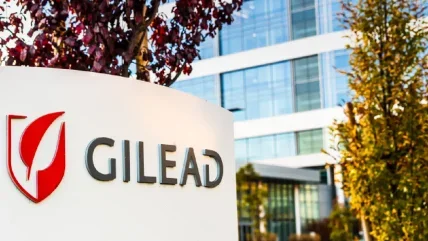
Gilead Sciences and Kymera Therapeutics have entered an exclusive option and licensing agreement to advance the development of a novel molecular glue degrader (MGD) programme targeting cyclin-dependent kinase 2 (CDK2).
The collaboration aims to advance the development of treatments for various cancers, including breast cancer and other solid tumours.
The treatments will focus on the removal of CDK2, a key contributor to tumour growth.
Under the terms of the agreement, Kymera is eligible for up to $750m in total payments, including up to $85m in upfront and potential option exercise payments.
In addition, the biotech company may receive tiered royalties on net product sales and will lead all research activities for the CDK2 programme.
Should Gilead exercise its option to exclusively license the programme, it will gain global rights to develop, manufacture, and commercialise all resulting products.
Kymera Therapeutics founder, president, and CEO Nello Mainolfi said: “We are excited to announce this strategic collaboration with Gilead Sciences, highlighting our dedication to innovation in the field with our first disclosed molecular glue programme.
“We are committed to developing highly selective, potent, oral degrader medicines that address key disease-causing proteins and pathways that are undrugged or inadequately drugged by existing technologies.
“Our highly specific, orally active, CDK2 molecular glue degraders have demonstrated a compelling preclinical profile and have the potential to transform the therapeutic landscape for breast cancer patients and other tumour types with high unmet medical need.
“We are excited to work with the talented Gilead team to accelerate the development and commercialisation of this important programme.”
CDK2-directed MGDs represent a new class of drugs designed to eliminate CDK2 rather than merely inhibiting its function.
Traditional CDK2 inhibitors often affect similar proteins, leading to unwanted side effects.
MGDs offer the potential for more precise, safe, and effective cancer treatments by selectively removing CDK2 from cells, thereby reducing the likelihood of adverse effects.
Gilead Sciences executive vice president of research Flavius Martin said: “MGDs are opening exciting new possibilities in cancer research by offering a way to eliminate disease-driving proteins rather than just blocking them.
“This mechanism aligns within our oncology scientific framework where we evaluate therapeutic agents that selectively target and kill cancer cells with minimal impact on healthy tissue.
“We are delighted to partner with Kymera to advance this novel oral programme with the potential to drive meaningful improvements in the standard of care for patients living with breast cancer and other cancers that are inadequately served with existing therapies.”






